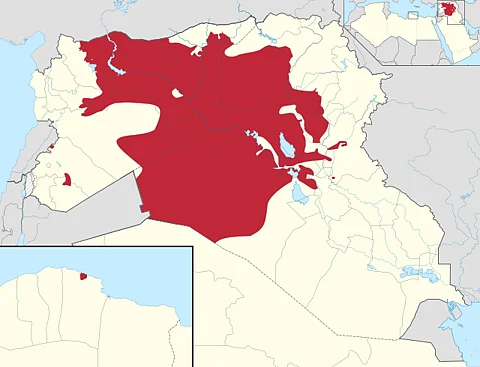

A suicide bomber attacked the Mar Elias Greek Orthodox Church in Damascus’s Dweila neighborhood during Sunday evening prayers, killing at least 25 worshippers and injuring 63 others. The assailant, identified by Syrian authorities as an Islamic State (IS) operative, opened fire inside the packed church before detonating his explosive vest. Witnesses reported a second gunman fled the scene. The attack—the first major suicide bombing in Damascus since Bashar al-Assad’s ouster in December 2024—left the church’s interior strewn with shattered pews, blood-spattered religious icons, and human remains.
Father Fadi Ghattas, who was leading the service, stated approximately 350 people were present when the attacker stormed the entrance. Eyewitness Lawrence Maamari described congregants attempting to subdue the gunman before the detonation. Issam Nasr, a survivor, mourned: “We have never held a knife in our lives. All we carried were our prayers”. The assault intensified fears among Syria’s Christian minority, who comprise 10% of the pre-war population and now face renewed threats under the interim Islamist-led government.
The Syrian Interior Ministry attributed the attack to IS, noting the group exploited security vacuums following Assad’s fall. A UN report from February warned IS retains 1,500–3,000 fighters in Syria and Iraq, with sleeper cells actively regrouping. Analysts suggest the group seized abandoned weapons during the regime collapse and spent months infiltrating cities to orchestrate sectarian violence. Despite President Ahmed al-Sharaa’s promises to protect minorities, his government—dominated by former Hayat Tahrir al-Sham (HTS) militants—struggles to control radical militias and integrate security forces.
Interior Minister Anas Khattab vowed to investigate the “reprehensible crime” and reaffirmed commitments to “civil peace”. President al-Sharaa’s administration faces mounting pressure, however, as Christians and other minorities question its ability to curb extremism. The Greek Orthodox Patriarchate demanded authorities “assume full responsibility” for protecting churches. UN envoy Geir Pedersen condemned the bombing and urged Syrians to “reject terrorism and incitement,” while the U.S., EU, Turkey, and Saudi Arabia issued strong rebukes.
The bombing underscores Syria’s fragile transition. Recent months saw revenge killings targeting Alawites and Druze minorities, highlighting unresolved sectarian strife. Christians, already diminished by war and emigration, now grapple with existential uncertainty. Archbishop Jacques Mourad of Homs noted Syrians live “without dignity or trust,” fearing rigid Islamist policies alien to Syria’s traditionally pluralistic society. With IS likely to escalate attacks, al-Sharaa’s government must choose between appeasing hardline allies or prioritizing inclusive security reforms.